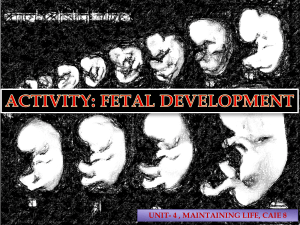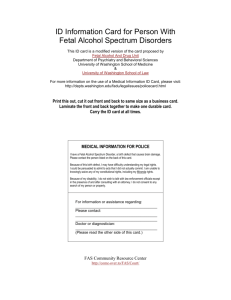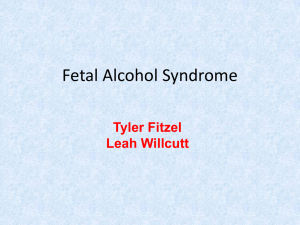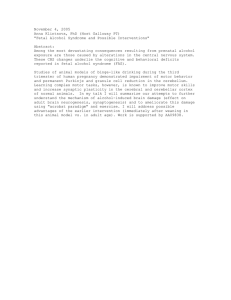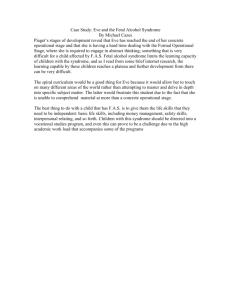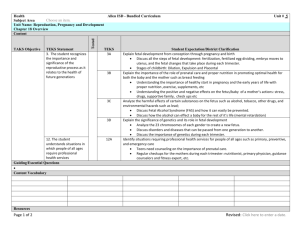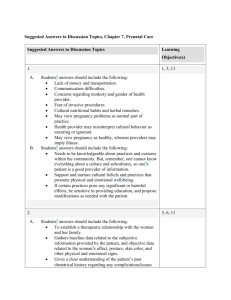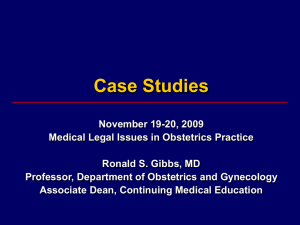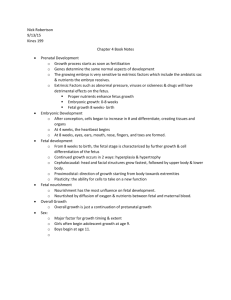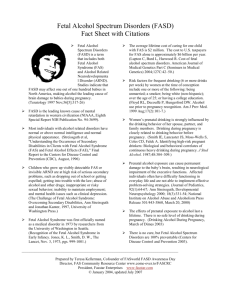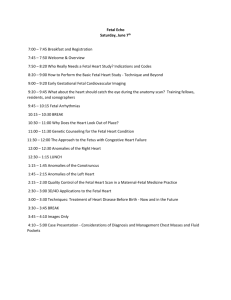Fetal Alcohol Syndrome: Effects on Brain Development
advertisement
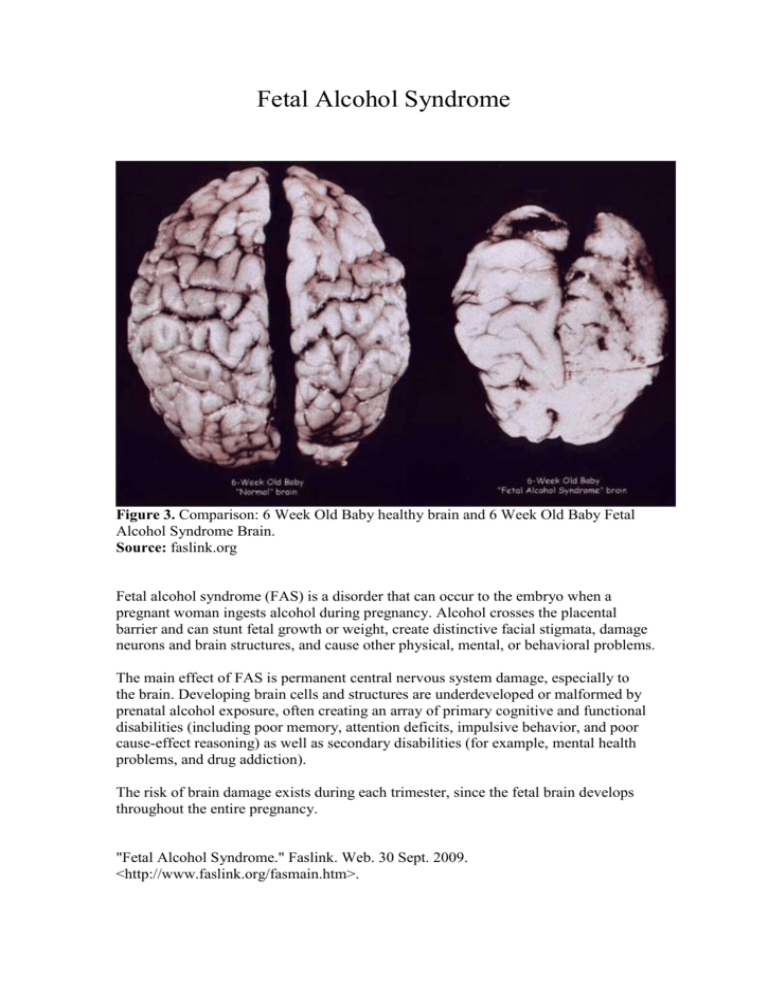
Fetal Alcohol Syndrome Figure 3. Comparison: 6 Week Old Baby healthy brain and 6 Week Old Baby Fetal Alcohol Syndrome Brain. Source: faslink.org Fetal alcohol syndrome (FAS) is a disorder that can occur to the embryo when a pregnant woman ingests alcohol during pregnancy. Alcohol crosses the placental barrier and can stunt fetal growth or weight, create distinctive facial stigmata, damage neurons and brain structures, and cause other physical, mental, or behavioral problems. The main effect of FAS is permanent central nervous system damage, especially to the brain. Developing brain cells and structures are underdeveloped or malformed by prenatal alcohol exposure, often creating an array of primary cognitive and functional disabilities (including poor memory, attention deficits, impulsive behavior, and poor cause-effect reasoning) as well as secondary disabilities (for example, mental health problems, and drug addiction). The risk of brain damage exists during each trimester, since the fetal brain develops throughout the entire pregnancy. "Fetal Alcohol Syndrome." Faslink. Web. 30 Sept. 2009. <http://www.faslink.org/fasmain.htm>.
